Search engine optimisation (SEO) is both an art and a science. As an art, it involves creating compelling, relevant, and high-value content that hooks users and urges them to take positive action, whether by heading to your website or purchasing your offers right away.
As a science, SEO includes skills and technical knowledge of how search engines crawl, index, and process webpages to come up with a result. And for this, you must understand website architecture, performance, and data structure and optimise them to conform to the most crucial of over 200 factors influencing search rankings. Additionally, an SEO expert must be aware of the frequent changes and updates implemented several times a year.
That said, SEO is indeed a complex activity and one that needs to be regularly reviewed and updated. For example, you might already know about the three main SEO classifications: on-page, off-page, and technical optimisation. But there's another element that small businesses must consider: their local SEO search ranking.
But what is local SEO and what are the local search ranking factors? There are different elements to consider if you want to appear high in local search rankings. And we're going to discuss them in this article.
What local SEO means
Local SEO is the process of optimising a business's ranking and online visibility in local searches. It's an important strategy when targeting users searching for products and services within their specific geographical area.
Chances are, you use local searches frequently, for instance, when looking for a place to eat, hang out, sleep, or visit as a local or a visitor. Local searches are also known as 'near me' queries and are typically done by consumers ready to purchase. But a local search can be done without necessarily placing location-specific keywords.
For businesses to appear in local search results, they must create a profile in the search engine's local directory, such as Google My Business and Bing Places. Apart from maintaining a company website and creating a business profile on search engines, local SEO must be implemented alongside traditional and online marketing strategies for optimal results.
How does a local search engine result look?
Unlike a traditional organic search engine results page (SERP), a local SERP shows three parts: on the upper portion are the map and the local pack – often consisting of three of the most relevant entities. Below are the localised organic search results.
Besides the business name, other details are visible in the local or three-pack, like ratings, business classification, operating hours, phone number, services or products rendered, website link, etc.
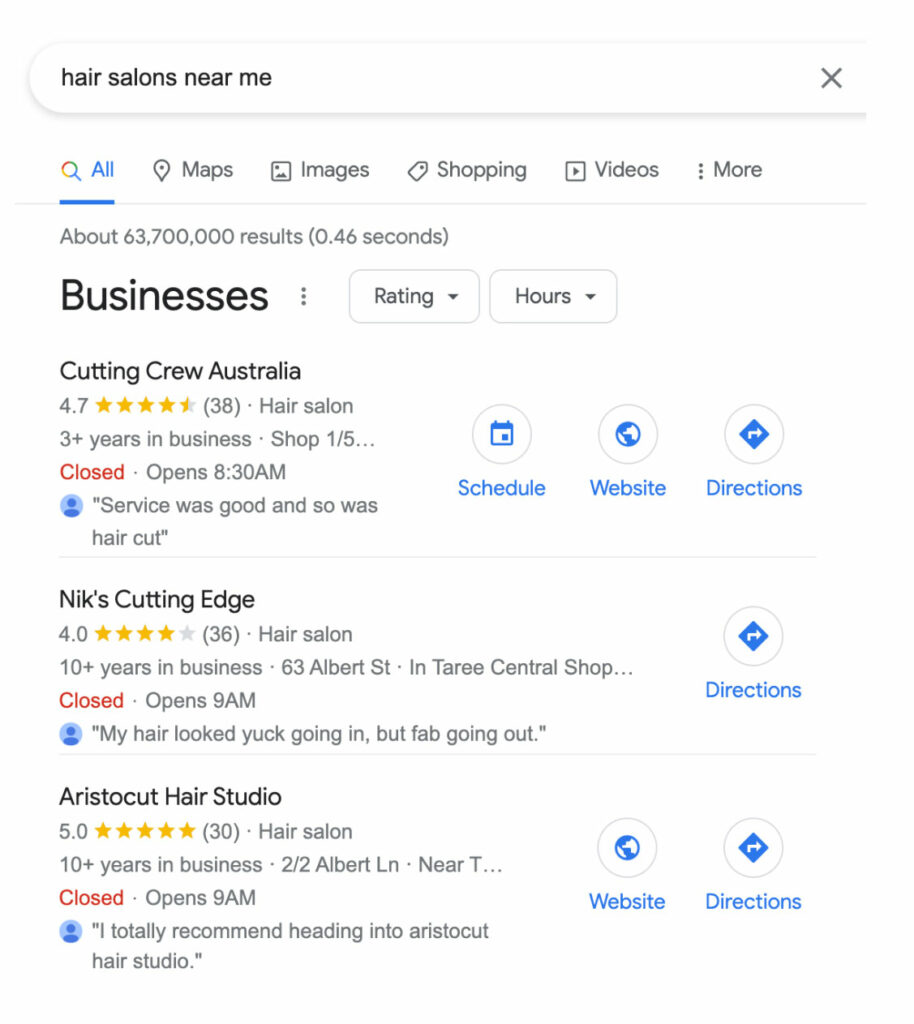
How important is local SEO for businesses?
According to estimates, local searches comprise half of Google's2 trillion annual queries based on the 2020 State of Local Industry Report by moz.com. A pre- COVID-19 pandemic survey indicated that half of the local searches resulted in a store visit. Moreover, almost 90% of local searches initiated via mobile phones led to calls or store visits within 24 hours, according to theworld's leading search engine company, Google. The firm also said 28% of these visits resulted in a purchase.
Hence, any business with a physical store, regardless of size, must strive to rank highly in local search engine rankings to increase its revenues.
When done strategically and alongside the primary SEO techniques, local SEO helps boost online visibility, target the right audience, and send potential buyers to your doorstep. The accompanying reviews and ratings also help build your brand or cement your brand reputation and authority.
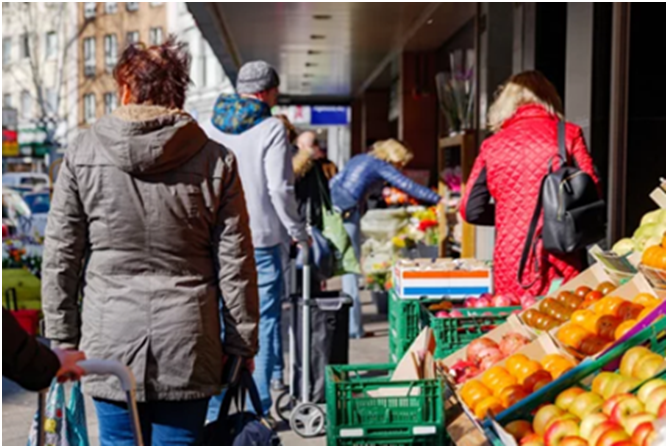
3 pillars of local SEO
As of November 2022, Google, Bing, and Yahoo make up the global search engine trifecta. But there's a huge disparity between these three platforms. Recent figures indicate Google's market share is pegged at 83.75%, second-placer Bing captures 9.67%, and Yahoo's 2.47%.
Ranking factors or signals are the elements that search engines use in evaluating web pages. With these elements, search engines can determine the results most relevant to a user's search query.
Like SEO search factors, several components influence local SERPs. But these can be grouped into three primary classifications: distance, prominence, and relevance. Specific elements that fall under these categories will be discussed later.
- Proximity
This primary local SEO search ranking category means that the platform will calculate the distance between the user's location and every possible result. This means that businesses located close to the searcher will be at an advantage.
For instance, a consumer who submitted a 'dining spots near me' query is unlikely willing to drive 50 kilometres to eat at a five-star restaurant. Even if the inquirer doesn't include the location in the question, search engines will still use proximity to present the results.
- Prominence
Prominence refers to your local business's popularity, and search engines measure this by scanning your positive review ratings and presence on the local directories and other citations.
Business popularity can also be gauged according to how well users know your business, your content performance, and your organic search rankings. In other words, your organic SEO strategies can affect your local search popularity as well.
To boost your local SEO prominence, optimise yourGoogle My Business profile, build backlinks strategically, develop a strong social media presence, and work on earning more positive reviews, among other tactics.
- Relevance
Search engines rely on your business and website information to decide whether your profile matches a local searcher's query. As mentioned earlier, it's a fundamental element search engines use in coming up with local SEO results.
The good news is that companies can influence this category through different means. These could include strategically using and placing relevant keywords in your content and profiles and optimising your website architecture. Citing your core services or products can help too, as is using these keywords in the meta tags and descriptions.
Knowing these main local SEO pillars gives you insights into optimising your online digital properties for local searches.

The most crucial local SEO ranking factors
Algorithms that fuel search engines constantly evolve to provide the best results for every query. But they're confidential and kept as a trade secret, so local SEO experts often curate essential ranking factors based on their experience and observations.
With that, below is a list of the essential categories that influence local search rankings.
- Complete and updated Google My Business listing
As mentioned, businesses won't appear in local searches unless they've created a profile in the search engine database. Here's what you need to do to ensure visibility in the most-used search engines:
- Set up an account with Google My Business (and Bing Places for Business).
- Provide complete information (contact details, operating hours, payment methods accepted, services and products offered, etc.).
- Choose the right primary and secondary business categories.
- Integrate the right keywords in your business profile.
- Upload photos of your business.
- Request clients to post their reviews.
Each local search will trigger Google to scan its database to show the most relevant results. Businesses must use the most appropriate primary business category and provide complete and relevant information. Doing so can greatly impact their Google local business result ranking and target potential customers correctly.
If you want to guide your customers to your doors, add your local business to Google maps. Link your My Business profile to this listing, and have a map embedded on your company website.
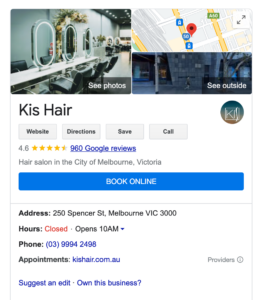
- Consistent NAP information across all platforms
User proximity is a significant ranking factor; local search engines often use this to show relevant results. If a potential customer nearby initiates a query, your business will likely appear in the top spot. However, if a client launched the search close to your competitor's location, your company probably won't be included in the top three.
You can leverage your physical location in proximity-based searches by maintaining consistent information on your name, address, and phone details (NAP) across all platforms, including your website and other online directories. Note that search engines rely on such data to organise the SERP. Consistent NAP information across all platforms signals business legitimacy. Even slight information variations could confuse the search engine, negatively affecting your local search rankings.
- Presence on other online business directories and citations
Besides search engine databases, algorithms will scan additional information about your business online. The more mentions your business has, the more likely it is to rank highly on local searches.
- Third-party site reviews
Businesses can also boost their local search visibility by linking to more prominent, authoritative online directories and reliable review sites. Along with your website, ask your clients to upload their reviews on third-party pages, like Google and Apple maps, Foursquare, Houzz, TripAdvisor, and Yelp, depending on the niche. This tactic is called a structured citation, an effective way for small businesses to get high-quality backlinks.
- Paid or unpaid brand mentions
Meanwhile, unstructured citation happens when a third party mentions your business through websites, blogs, and other digital content. Collaborating with other small businesses and being featured by local news or influencers for a fee or for free can earn a company an unstructured citation.
Overall, citations are valuable in boosting an entity's reputation and authority or prominence, with search engines and potential customers seeing your business as a reliable and legitimate organisation.
- Online reviews management
Businesses may not think much about online reviews. But the truth is, they can influence purchasing decisions based on various studies. Research has found that up to 93% of consumers think reviews can help them make better buying decisions. At the same time, another study discovered that 82% of buyers read product reviews before making a purchase.
In addition, online reviews are valuable as local search ranking signals. But not all reviews are the same. Focus on the following elements to help pull up your local SEO efforts:
- Gathering as many online reviews as possible
Let's be honest; if you were to choose between a restaurant with a two-star rating and 20 reviews vs. a four-and-a-half score with 200 reviews, you'dlikely pick the latter, right?
As far as humans and search engines are concerned, the number of positive reviews and your business ratings can impact your brand reputation, popularity, and authority. This effort requires local SEO tactical expertise, impeccable customer service, or a life-changing product.
Only then can your business gain its reputation as a credible and trusted company. Boost your ratings by making feedback collection a requirement for post-sales activities. Your rankings will likely be higher the more glowing reviews you have. According to research byHarvard Business School, businesses that experience a one-star rating increase on Yelp generate5 to 9%morein sales.
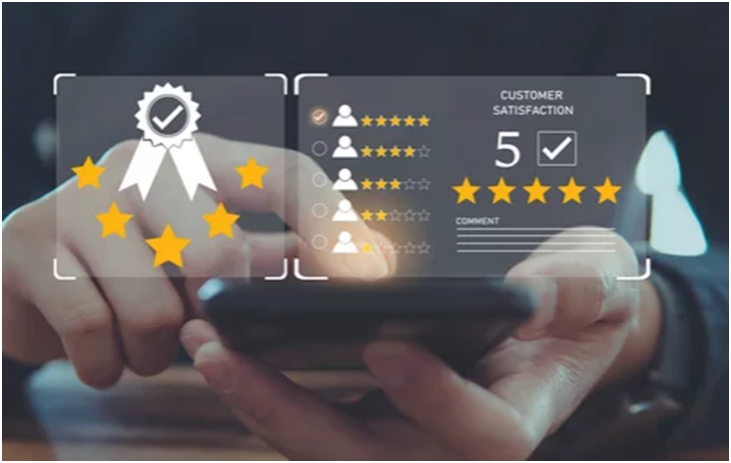
- Engaging with customers
Aside from monitoring what consumers say about your business, you must reply and engage with your audience, as doing so helps build trust and adds legitimacy to your business. Similarly, take time to respond to negative reviews thoughtfully and without losing tact and diplomacy. Furthermore, consider offering specific solutions to fix the problem while considering that some clients will take advantage and have unreasonable demands.
Nevertheless, local search engines will use online customer feedback and ratings as a ranking signal. Businesses should establish a system to automate online review collection and strategically handle reviews.
- Strategic keyword use
Certain on-page SEO elements are important in local searches, including keywords, high-quality content, and backlinks, as you'll find out later. Of these components, however, keywords are some of the most dynamic, as you can insert them in all content types. As such, local keyword research is also crucial if you want to appear in local search engine rankings and boost online visibility.
How keywords impact local search ranking results
Search engines rely on the words used in the query to deliver the most relevant results possible. While all the main pillars, proximity, prominence, and relevance, are considered, the keywords used in certain search queries will dictate that algorithms put more weight on one aspect than the other.
For instance, 'near me' searches are all about proximity, while searches with 'the best’arebased on prominence. Placing a specific item, service, or food name will trigger thealgorithm to focus on relevance. For example, the local SERP differs for users keying in'local SEO companiesnear me' versus 'best SEO agencies Melbourne.'
Local SEO near me

Best SEO companies

Optimising keyword use
Besides keyword research, providing complete information on your business profile is necessary, as search engines look at suitable locations and business information. Don't forget to embed keywords and your business location in the following content types:
- Business description/ profile
- Headlines
- Title and meta descriptions
- Headings
- Article body
- Customer reviews
Doing so helps search engines understand what your business is all about and rank you in local searches.

- High-quality links and anchor text
Another on-page optimisation strategy is building backlinks. To the uninitiated, backlinking happens when another business or site links to any of your pages. Algorithms consider this a vote of confidence for your establishment. Links are considered in evaluating an entity's authority and prominence. Thus, it's included as one of the local search ranking factors.
- Create a backlinking strategy
However, as every SEO practitionerknows, not all links are created equal. Some are more valuable than others, depending on theirdomain or website authorityand page authority scores. Much as you want your business to be cited by as many websites as possible, ensure that these third parties are high quality to improve your local search engine rankings effectively.
A backlinking strategy is vital to identifying relevant anchor text, gaining high-quality inbound links, and maintaining a steady stream of high-quality links. Consider partnering with other local businesses, engaging with popular individuals on niche-related topics, and uploading valuable local content often.
Doing so helps Google and other search engines understand that your business and site are credible, trustworthy, and, eventually, authoritative.
- Producing high-quality and valuable local content
Generating great content that hits home helps improve local search rankings because more users will find it relevant, relatable, and shareable. As such, you earn credibility and authority in the search engines' eyes as more users scan your pages, comment, react to, and share your digital assets.
After keyword research, integrate the terms into your website content to boost your local search engine visibility. Apart from blogs, diversify and create other content types, such as infographics, white papers, case studies, interactive quizzes, and how-to videos. Maintaining an omnichannel presence also helps you distribute and market your content. Doing these help your company stay on top of consumers' minds and rank in Google's local business result.
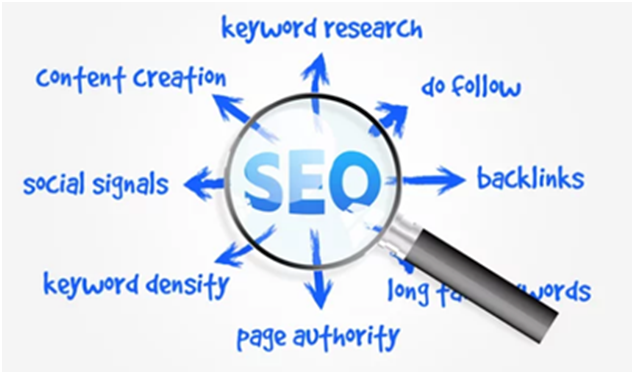
- A mobile-friendly and responsive website
Over 6.6 billion people worldwide own a smartphone, meaning they spend certain hours on their mobile devices daily to seek information, connection, entertainment, and purchase. Regardless of your business size, it's paramount to have a mobile-friendly and responsive website to reach your target audience. Not having one will hurt all your SEO efforts, including your local search engine rankings.
As mentioned, Google algorithms continuously improve to provide the best user experience, and they expect businesses to do the same. Therefore, a responsive website that can be viewed and used anytime will likely rank higher than those that aren't. For instance, if your site has high bounce rates and low engagement, algorithms will interpret it as a poor user experience and negatively affect your rankings.
- Positive user behaviour signals
Search engines can sense how users interact with your site and pages by analysing their behaviour and coming up with certain metrics. As mentioned above, a visitor who doesn't spend a few seconds or minutes on your site might have discovered that your page isn't relevant or helpful. Sometimes, an unresponsive website can repel readers from your website.
Here's a list of metrics that help search engines determine user behaviour, impacting organic and local SEO ranking factors:
- Click-through rate, which indicates whether your users find your content useful or not
- Mobile clicks to calls, which measures your business's relevance to their needs
- Social media check-ins that gauge readers' interest in your firm and the content you generate
- Clicks for directions for prospects interested in visiting or purchasing your products and services
- Clicks to the site, showing the number of people accessing your site through your local business profile or listing
- Dwell time, which measures the time spent on your pages and other digital assets
A user is expected to react positively after seeing the local pack and organic search results. When they do, the algorithm assumes your business or the other high-ranking firms in the local pack are the most relevant results.
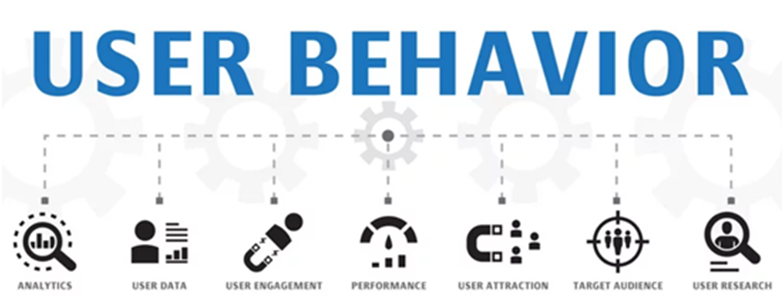
Wrapping up
Several elements influence local search ranking factors, which are being modified over time. However, as can be gleaned from the discussion above, these platforms, particularly Google, only want to provide the best user experience by showing the most relevant query results.
Besides strategically integrating keywords, building high-quality backlinks, and keeping tabs on the most recent algorithm changes, your business should strive to make your customers happy by providing impeccable service and products and supplying comprehensive and valuable information. Working with other local companies and influential community members can also help boost your brand reputation online and offline.
For these things to happen, your content must be visible to your target audience – and SEO can help your business get ahead of organic and local searches. Your local business can't thrive if you don't know how to optimise.
Contact us for any questions or if you need help boosting your organic and local SEO status.
